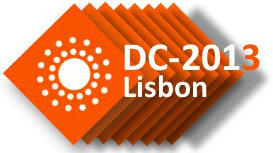- From: Dan Brickley <danbri@danbri.org>
- Date: Fri, 26 Jul 2013 17:27:14 +0200
- To: Bernard Vatant <bernard.vatant@mondeca.com>
- Cc: "public-vocabs@w3.org" <public-vocabs@w3.org>
- Message-ID: <CAFfrAForTtWqhN-YLRG0iZ_ZD=1=XcUMBQ96bRSqTQ+y1FD5Mg@mail.gmail.com>
On 26 July 2013 16:13, Bernard Vatant <bernard.vatant@mondeca.com> wrote: > Hello all > > This is a question I has been wanting to push here for quite a while. > If my counting are correc, schema.org latest version has 428 classes + > 582 properties = 1010 elements. > The number of candidate and potential extensions is likely to grow at a > steady pace. Now that a handful of early adopter industries and communities > have successfully pushed their vocabularies into schema.org, many others > are likely to follow when they discover their obvious interest in doing so. > And this when is now or quite soon, obviously. > > This growth is a good thing, but it will, and actually has already hit > known limits in this kind of exercise, which once again boils down to > represent the whole world in a unique model, and a unique namespace. > > The first point is not really an issue. The semantics of schema.org are > "soft" enough to accomodate slight inconsistencies between various branches > of the vocabulary, for exemple the same property used here and there with > slightly different semantics will not really be an issue if those branches > are unlikely to be used in the same context. > > The unique namespace is another issue. Once a name has been used to > identify a class or a property, it can't be reused for something else. New > extensions will have to cope with the legacy. Suppose I want to use > http://schema.org/study for something else than a MedicalEntity and > MedicalStudy Suppose DDI people want to introduce their concept of Study > [1]. What will be the negotiation process? > > More generally is there a limit one could set for a manageable sensible > size of the vocabulary? 10,000? 100,000? > Is there a plan of any kind to put a limit in size or in time to the > vocabulary growth? > We don't have an iron-clad policy for any of this. It's more opportunistic than that. If we can improve the Web by adding more types and properties here and there, we'll try to do so. At the same time, as you point out, there are natural limits. So the 'external enumerations' discussion was important, for example. And external efforts like Wikidata are very important. My favourite example is http://schema.org/PlaceOfWorship ... we can't really have schema.org enumerate all the kinds of place of workship that might fit there. But we can expect schema.org to show how external lists (like Wikidata's, or Freebase's) plug in. For vocabulary clash, it is an issue, but perhaps we can work around it in many cases. I noticed rather too recently that the 'action' property name has already been used up for a relatively niche use (on 'Muscle'): http://schema.org/action - "The movement the muscle generates." What I'd suggest here is a combination of asking around to see if people are using it heavily or planning to, plus (at the search engines) looking at crawl data. If it isn't widely used yet, it might be a good candidate for renaming muscleAction. This might seem awkward, but there is a lot also to be gained from having a simple namespace structure... Dan > > Thanks for your thoughts. > > Bernard > > [1] http://rdf-vocabulary.ddialliance.org/discovery > > > > > -- > *Bernard Vatant > * > Vocabularies & Data Engineering > Tel : + 33 (0)9 71 48 84 59 > Skype : bernard.vatant > Blog : the wheel and the hub <http://bvatant.blogspot.com> > Linked Open Vocabularies : lov.okfn.org > -------------------------------------------------------- > *Mondeca** ** * > 3 cité Nollez 75018 Paris, France > www.mondeca.com > Follow us on Twitter : @mondecanews <http://twitter.com/#%21/mondecanews> > ---------------------------------------------------------- > Mondeca is co-chairing > Long-term Preservation and Governance of RDF Vocabularies<http://dcevents.dublincore.org/IntConf/index/pages/view/vocPres> > at Dublin Core Conference > >
Attachments
- image/jpeg attachment: dc2013-Lisbon.jpg

Received on Friday, 26 July 2013 15:27:42 UTC